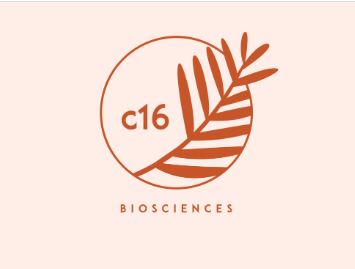Palm oil is the most widely used vegetable oil in the world. From shampoos to cosmetics, palm oil is used in 50% of what you buy at supermarkets. As it is a frequently used oil, it is absolutely necessary, but environmental destruction caused by palm oil production is emerging as a serious problem. Forests are being destroyed indiscriminately to meet the huge demand for palm oil. Palm oil farms burn tropical rainforests to plant more palm oil trees and then plant palm oil palm trees in their place. This results in 500 million tonnes of CO2 generated by the palm oil logging industry each year. In addition, the exploitation of children and women is also considered a problem in the production of palm oil.

New York-based oil startup c16 Bioscience is trying to solve this problem with oil produced in the lab. It is producing oil that is chemically similar to palm oil through a bioreactor. Founded in 2017, the start-up’s lab-made oil is functionally similar to palm oil.
In general, palm oil production requires vast land and large trees, and the fruit is squeezed and refined into usable materials, but c16 produces oil through a fermentation process such as brewing beer or making cultured meat using biotechnology. The yeast is grown and the new oil grows in the cells of the yeast. It produces palm oil like beer through fermentation techniques.
With this technology, the c16 recently also successfully attracted a $20 million Series A investment from Breakthrough energy ventures. Breakthrough was founded by Bill Gates to invest in innovation that can cope with climate change with other investors.
“Palm oil is useful and functionally excellent, but it is only produced at specific temperatures,” said Sharattiku, CEO of c16. “Palm oil grows only between 5 and 10 degrees Celsius. From the equator, it can only be produced in tropical rain forests.” This is why production cannot be stopped even by burning rainforests to meet the huge demand for palm oil.
Organizations like RSPO, which are concerned with sustainable palm oil production, have been trying to solve this problem since 2004, but they have failed. 250 companies have promised to stop using irresponsibly produced palm oil, but the problem still persists. Indonesia, one of the palm oil producers, is burning forests to produce palm oil, making it the world’s largest source of greenhouse gas emissions. In addition, the destruction of the forest threatens the survival of animals and plants that have made the forest their home.
The goal of c16 is to replace all palm oil trees associated with deforestation. The c16 is set to start small, with demand for oil expected to more than quadruple by 2050.
The plan is to bring the technology to the market in a way that is most likely to succeed. We are considering how to start with small production and get to market quickly. C16 is already producing oil in small quantities and will be introduced to the market first within the range that can be applied to the product. First, it can also be delivered to a care product company that makes beauty products. It must also be approved by the FDA before it can be used in food.
“C16’s mission is to end deforestation carried out by the palm oil industry,” said Tikku. “It is unacceptable to burn the earth to obtain vegetable oil.”


















Add comment